Related Research Articles

The Eurovision Song Contest 1981 was the 26th edition of the annual Eurovision Song Contest. It took place in Dublin, Ireland, following Johnny Logan's win at the 1980 contest in The Hague, Netherlands with the song "What's Another Year". The contest was held at the RDS Simmonscourt on 4 April 1981, and was hosted by Irish television journalist Doireann Ní Bhriain.
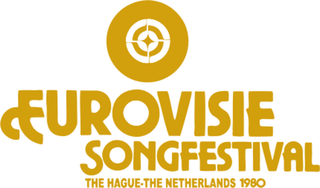
The Eurovision Song Contest 1980 was the 25th edition of the annual Eurovision Song Contest. It took place in The Hague, Netherlands, and was organised by host broadcaster Nederlandse Omroep Stichting (NOS) – which agreed to stage the event after Israel, having won in both 1978 and 1979, declined to host it for a second successive year – and the European Broadcasting Union (EBU). The contest was held at the Nederlands Congresgebouw on 19 April 1980 and was hosted by Dutch actress Marlous Fluitsma, although each song was introduced by a presenter from the participating nation.

The Eurovision Song Contest 1979 was the 24th edition of the annual Eurovision Song Contest. It took place in Jerusalem, Israel, following the country's victory at the 1978 contest with the song "A-Ba-Ni-Bi" by Izhar Cohen and the Alphabeta. Organised by the European Broadcasting Union (EBU) and host broadcaster Israeli Broadcasting Authority (IBA), the contest was held at the International Convention Centre on 31 March 1979 and was hosted by Israeli television presenter Daniel Pe'er and singer Yardena Arazi. This was the first time that the Eurovision Song Contest was held outside Europe.
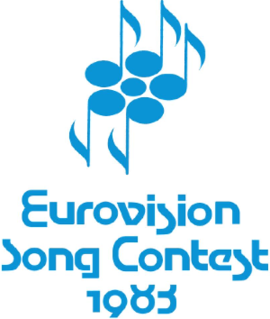
The Eurovision Song Contest 1983 was the 28th edition of the annual Eurovision Song Contest. It was held in Munich, then West Germany, following the country's victory at the 1982 contest with the song "Ein bißchen Frieden" by Nicole. Despite their first victory the year before, this was the second time Germany had hosted the contest, having previously done so in 1957. Organised by the European Broadcasting Union (EBU) and host broadcasters Arbeitsgemeinschaft der öffentlich-rechtlichen Rundfunkanstalten der Bundesrepublik Deutschland (ARD) and Bayerischer Rundfunk (BR), the contest was held at the Rudi-Sedlmayer-Halle on 23 April 1983 and was hosted by German dancer Marlene Charell.

Sharon Cohen, professionally known as Dana International, is an Israeli pop singer. She has released eight albums and three additional compilation albums. She was the winner of the Eurovision Song Contest 1998 in Birmingham with the song "Diva".

The Latin Church in the Middle East represents members of the Latin Church of the Catholic Church in the Middle East, notably in Turkey and the Levant. Latin Catholics are subject to the Latin Patriarchate of Jerusalem and employ the Latin liturgical rites, in contrast to Eastern Catholics who fall under their respective church's patriarchs and employ distinct Eastern liturgical rites, while being in full communion with the worldwide Catholic Church. Latin Catholics in the Middle East are often of European descent.

Germany has officially participated in every Eurovision Song Contest since its beginning in 1956, except in 1996 when its entry did not qualify past the audio-only pre‐selection round, and consequently was not seen in the broadcast final and does not count as one of Germany's 65 appearances. No other country has been represented as many times. Along with France, Italy, Spain and the United Kingdom, Germany is one of the "Big Five" countries that are automatically prequalified for the final, due to being the largest financial contributors to the European Broadcasting Union (EBU). The final is broadcast in Germany on ARD's flagship channel, Das Erste.

Turkey has participated in the Eurovision Song Contest 34 times since its debut in 1975. Since the introduction of the semi-finals in 2004, Turkey has only failed to qualify for the final once, in 2011. Turkey won the contest once in 2003, and hosted the 2004 contest in Istanbul.

Israel has participated in the Eurovision Song Contest 44 times since making its debut in 1973. Israel was able to enter the contest as the Israel Broadcasting Authority (IBA) was an active member of the European Broadcasting Union (EBU), which was responsible for the event. The IBA was succeeded as the broadcaster in charge of the Israeli entry by the Israeli Public Broadcasting Corporation (IPBC/KAN) in 2018. Israel has won the contest four times, and has hosted the contest in Jerusalem twice in 1979 and 1999. Israel hosted the contest for the third time in Tel Aviv in 2019.
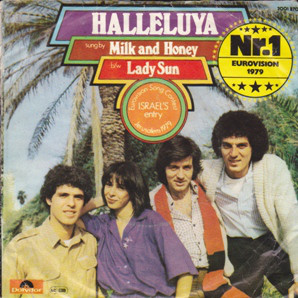
"Hallelujah" was the winning song of the Eurovision Song Contest 1979, performed in Hebrew by Milk and Honey, including Gali Atari, for Israel.
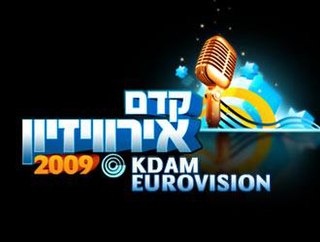
The Kdam Eurovision in short known as the Kdam was the Israeli national preselection of the Eurovision Song Contest. The competition was first introduced in 1981 and ran until 2014.
Israel participated in the Eurovision Song Contest 2007 with the song "Push the Button" written by Kobi Oz. The song was performed by the band Teapacks, which was internally selected by the Israeli broadcaster Israel Broadcasting Authority (IBA) in January 2007 to compete at the 2007 contest in Helsinki, Finland. The song Teapacks would perform at Eurovision was selected through the national final Kdam Eurovision 2007 which took place on 27 February 2007 that featured four songs. "Push the Button" emerged as the winning song after achieving the highest score following the combination of votes from an eleven-member jury panel, an online vote and a public vote.

The Eurovision Young Musicians, often shortened to EYM, or Young Musicians, is a biennial classical music competition for European musicians that are aged between 12 and 21. It is organised by the European Broadcasting Union (EBU) and broadcast on television throughout Europe, with some countries holding national selections to choose their representatives for the contest.

Dafna Dekel is an Israeli singer, actress and television personality.
Israel participated in the Eurovision Song Contest 2011 with the song "Ding Dong" written and performed by Dana International, who had previously represented Israel in the Eurovision Song Contest in 1998 where she won the contest with the song "Diva". The Israeli entry for the 2011 contest in Düsseldorf, Germany was selected through the national final Kdam Eurovision 2011, organised by the Israeli broadcaster Israel Broadcasting Authority (IBA). The competition took place on 8 March 2011 that featured ten entries. "Ding Dong" performed by Dana International emerged as the winner after achieving the highest score following the combination of votes from three thematical jury groups, a twelve-member jury panel and a public vote.

Thomas Neuwirth is an Austrian singer and drag queen who is known for his stage persona Conchita Wurst. Neuwirth came to international attention after winning the Eurovision Song Contest 2014 as Austria's entrant with the song "Rise Like a Phoenix".
Israel participated in and won the 1978 Eurovision Song Contest, held on 22 April 1978 in Paris, France. It marked Israel's first win at the contest and the first win for a country outside of continental Europe. The winning song was "A-Ba-Ni-Bi," composed by Nurit Hirsh, written by Ehud Manor, and performed by Izhar Cohen and the Alphabeta.
Levantines in Turkey or Turkish Levantines, refers to the descendants of Europeans who settled in the coastal cities of the Ottoman Empire in order to be engaged in trade especially after the Tanzimat Era. Their estimated population is around 1,000. They mainly reside in Istanbul, İzmir and Mersin. Anatolian Muslims called Levantines Frenk and Sweet Water Freng in addition to Levanten.
21. Peron was a Turkish progressive rock band in the 1970s. The band participated in the 1979 Eurovision Song Contest with a song called "Seviyorum". The band were due to perform in the final; however, due to political concerns, the Turkish Republic did not attend the final, which took place in Israel.
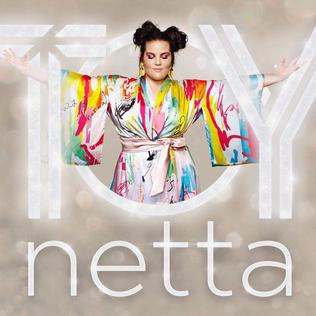
"Toy" is a song recorded by Israeli singer Netta Barzilai, and was Israel's submission to the Eurovision Song Contest 2018, which it won. The track was written by Doron Medalie and Stav Beger, and produced by Beger. The song was released on 11 March 2018 along with its official music video clip, which was directed by Keren Hochma. The song was leaked online a day before the official release.
References
- 1 2 3 4 5 "A musician in Izmir". Turkish Daily News. 13 July 2007. ProQuest 328668696.
- ↑ "'Some call them Levantine' sheds light on Izmir's cultural wealth". Turkish Daily News. 11 August 2007. ProQuest 328660004.
- ↑ cohen, San (20 March 1979). "Turkey decides to cast its lot with Arab world". Christian Science Monitor. ProQuest 512073700.
- ↑ Protest Public Relations: Communicating Dissent and Activism. (2018). United Kingdom: Taylor & Francis.